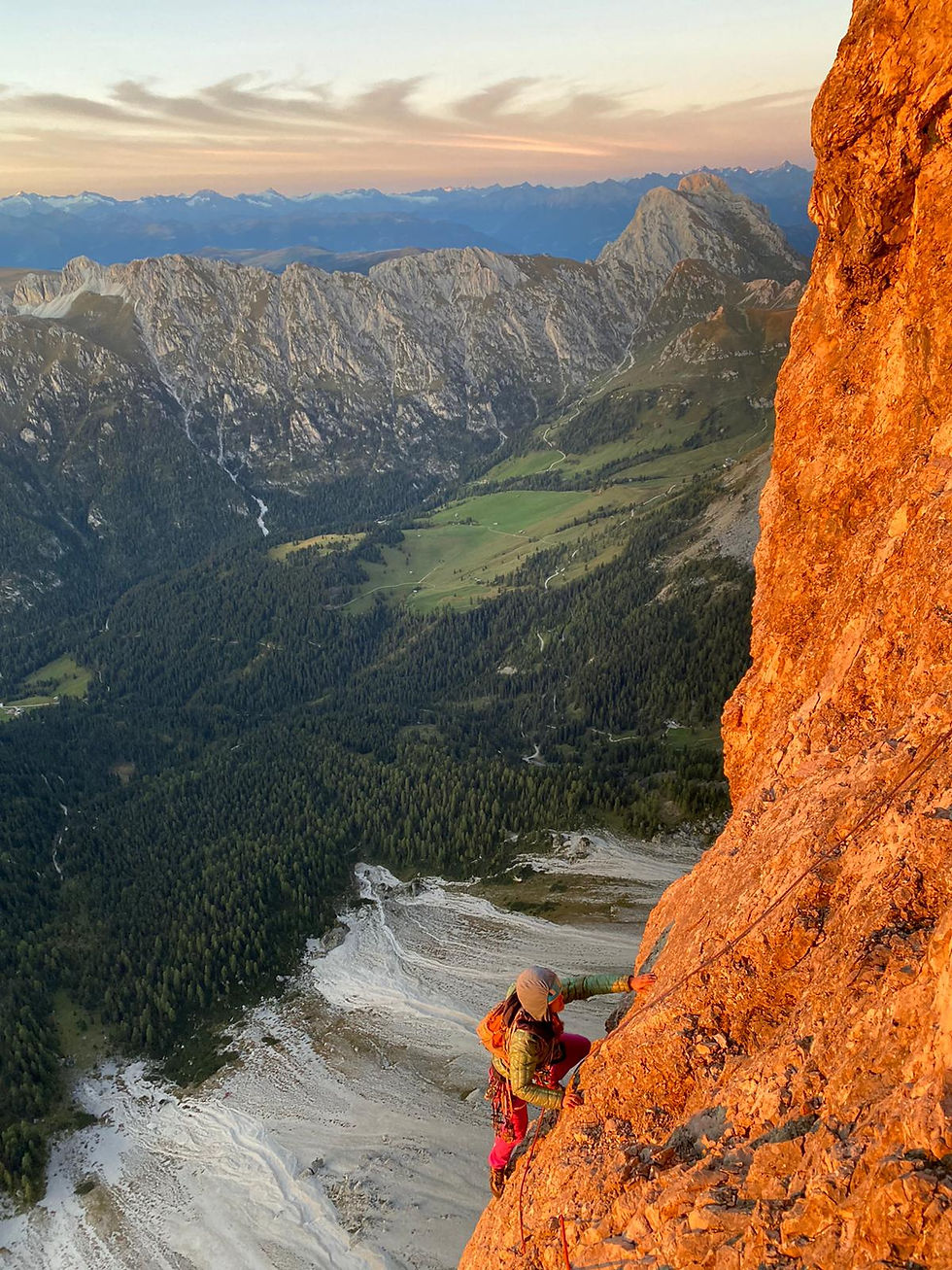Risk Management: Parallel Takeaways from "Failed” Climbs and "Failed" Exits
- Chelsea Burns

- Sep 22, 2022
- 3 min read
O

In September 2021, my climbing partner and I were rock climbing a 3000ft alpine big wall in the Italian Dolomites. What we thought would be a long, yet moderate day in the mountains turned into a scary 36 hours of alpine choss. The quality of the rock was exceptionally poor, meaning we had to climb slowly and with extreme caution. On several occasions the holds would break or my partner’s rope would drag rocks on top of me as he traversed up and across the face.
We were three pitches from the top of the route when the sun started to set. It was too unsafe to continue in the dark. Thus, we found a ledge that had just enough space to lay down our double ropes for insulation and prepared for the long night ahead. We spent the next 15 hours huddled together under a torn emergency blanket. We would have to wait until 11 am the next morning for the ice to melt off the limestone headwall above us.

This experience pushed me beyond my risk tolerance and it recalibrated my relationship with risk. I tell this story because I believe that the lessons we gain through our personal experiences and passions are transferable within our professional lives. Just as in climbing, understanding risk tolerance and being able to recalibrate one’s relationship with risk is key as an early stage investor. Some years the market, family life, cash flow, or other uncertain variables force us to reevaluate our risk tolerance.
As leaders and managers, we should celebrate the diverse skill sets that people build outside the office. Personally, rock climbing has helped me build skills that make me a better investor. It has increased my ability to problem solve. I have had to seek out top-tier talent to train and mentor me. I have had to explore my relationship with risk and I have had to learn new tools to manage that risk. I have had to ask for help, attend trainings, and learn new vocabulary to improve competency. These are all the same skills that I have developed over the last couple of years investing in early stage companies.
Transferable Skills between Climbing and Investing

Diligence
In the Dolomites, we attempted a wall that had very little information published about it. We thought it was going to be easier and safer than it was based on one very old guide book. In the end, it wasn't a safe climb and that lack of diligence resulted in rocks falling on my head and a very cold night shivering next to my climbing partner.
Investing in early stage companies requires diligence beyond researching one specific company. Instead, it requires recurring proactive engagement within the ecosystem. It is critical to expand your network. Every day I am learning so much from my peers about business models, why investors are turning down deals, or what types of questions I should be asking founders. I still have so much to learn but I improve my knowledge by working in the industry, judging pitch competitions, managing accelerators, and asking investor colleagues their opinion. For example, I regularly email investors asking , “Hey, what are your thoughts on this company?” On more than one occasion they’ve responded: “O, I have seen a lot of x type of companies pop up recently and I am passing on those sorts of deals because y.” This feedback helps me better evaluate companies in the next round of diligence.
Kindness
The recalibration of risk tolerance can sometimes make us question our identity. I know I have found myself asking questions like:
“Am I really an investor if I don't write a check this year?”
“What will this person think of me if I tell them I am holding on to my liquidity?”
“Am I still an x type of climber if I don’t climb x amount of days or x type of climbing or x grade?”
I try to remind myself that life is fluid. Motivations change based on life circumstances and that is ok. The most important thing is to stay focused on learning and be motivated to improve the world.



Comments